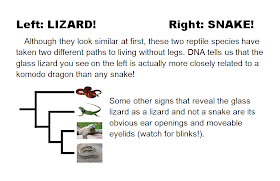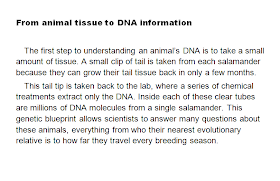Part of being a graduate student is working hard. Whispers of disappearing faculty positions and decreases in funding percentages are heard at most social gatherings. You have to be in the lab 80 hours per week to stay at the front. Right? In this really good blog post, Dr. Meghan Duffy (follow her on twitter here!) presents her argument for why the myth of the 80 hours/week = success equation is pretty silly.
When I read Dr. Duffy's post a few weeks ago, I had already been intensely thinking about the way I work for about a month. After reaching doctoral candidate status in the fall, I realized that I had a lot of irons in the fire. I also realized I had no real grip on how I spent my time. I knew I was working and I knew I felt like I was working hard, but I needed some more information about my habits. Ya know, data.
So how does a PhD student spend their time? Well, I've been diligently logging all of my work hours since January 14th. I'm no Steven Wolfram, but I put this app on my phone and set up six categories of my work:
- General Work: a catch-all for emailing, running small errands, generally finding journal articles, etc.
- Meetings: anytime I was sitting in a meeting for the lab, the department, or other research activities went here
- Thesis Research: any activity related to thesis research
- Other Research: any research, including educational research, that doesn't directly apply to the ol' thesis
- Outreach Activities: this included both things outside of the university (giving a public talk, preparing materials for outreach events, etc.) and things within our lab (running undergraduate lab meetings)
- Teaching: any time spend preparing for teaching or preparing for teaching
There is definitely a lot of subjectivity involved when placing actions in one of these categories, but this is what I rolled with for better or worse. Bottom line: whenever I was really working (not surfing the internet) on one of these categories, I was "clocked-in".
How much am I working?
As of downloading the data on Sunday, I've averaged 45 hours/week of real work. I'm working an average of 6.43 hours per day (including weekends). If I look at when I'm working, I start my Monday-Friday work days on average at 9:04 am and head home at 6:40 pm on average.
Here is a boxplot of the start times of different activities:
This makes pretty good sense compared to my general thoughts about my schedule. I usually have meetings during the morning or midday, handle little things and email first thing in the morning, and often use larger blocks of time in the afternoon for research in the lab or at my computer. I generally go to the gym early in the morning and take time for lunch with other grad students.
What am I working on?
Since I am not teaching this semester and am being paid through a research assitantship, the data shows that I am (thankfully) working mostly on research projects. The teaching category isn't presented here for the same reason.
Category: Duration (% of total across 33 days)
General Work: 47.46 hours (22.4% of total)
Meetings: 23.67 hours (11.2% of total)
Thesis Research: 81.28 hours (38.3% of total)
Other Research: 14.76 hours (7.0% of total)
Outreach Activities: 44.99 hours (21.2% of total)
Here is a bar chart showing how I spend each work day on different activities:
I love this view because it primarily demonstrates what I think is so great about being a graduate student: few days are ever the same. Sometimes I can spend the day devoted to a single project and some days I run from place to place doing very different things. For example, on January 30th I spent the whole morning getting some things in the lab organized, had a committee meeting late-morning, ate lunch with the departmental seminar speaker, went to the seminar in the afternoon, worked in the lab for the rest of the day, and then drove to Crawford County in the evening to give a public talk for the Parks District. The following Thursday I spend the majority of the day at my computer writing. Different days produce very different paces and styles of work.
Other observations:
I don't work that much on the weekends. I use the weekends as re-charge time and predominantly spend them with my wife and friends or working on hobbies. I think this is a good use of my time so that's what I do.
Some days are long days and some days are short days. Fridays are generally short days while Mondays/Thursdays are generally long days away from home. I'm not a robot that can work long hours day after day, so long days are usually followed by less work the next day. I can see the sense in this, but definitely see room for improvement.
How efficient am I?
I wish I had better data to answer this question. Since I didn't log the amount of time I was "trying" to work, it is hard for me to know how many of those hours I was actually working on one of the above categories.
One thing I was interested in is how long I spend doing each activity. For example, I am extremely fatigued by reading journal articles for more than an hour, but I feel like I can infinitely chip away at a seemingly endless "small things to do list".
Here is another boxplot showing the duration of each activity:
But have these been a productive few weeks? I think so. I believe that I spent each of those ~45 hours to get things done. But my whole point here is to quantify what the daily life of a scientist is actually like without the posturing or the caricatures of overworked grad students pulling out their hair.
 |
| Haha, yep, there I am. |
Besides the obvious benefit of having sweet, sweet data to play with, logging these hours had an entirely unpredicted psychological outcome. It turns out that taking the time to click on my phone and think "Ok, what am I actually going to do right now" is a great exercise in focusing my mind.
I'm now going to click "end outreach activity" and go watch Downton Abbey. See ya.
























